SALIM VALLY
South Africa’s Solidarity with the Palestinian struggle
“Israel’s crimes are so heinous, their depravity so disturbing, Palestinian suffering so intolerable, and the UN so paralysed that people around the world are increasingly rising in outrage. This level of global solidarity – students on hundreds of university campuses demanding divestment; workers refusing to handle goods and arms to and from Israel; cultural workers and sportspeople condemning and boycotting events with Israeli participation; communities declaring apartheid-free areas and even countries taking tentative steps to impose sanctions on Israel – was last witnessed during the struggle against apartheid South Africa”(Global Anti-Apartheid Conference, 2024).
The epigram above is from a declaration adopted by the Global Anti-Apartheid Conference for Palestine held in Johannesburg in May 2024. The conference was attended by over 400 participants from 32 countries. The Declaration urged people and organisations globally to expand and escalate actions in solidarity with the Palestinian people’s liberation struggle to end “genocide, ethnic cleansing, occupation, settler-colonialism and apartheid ‘from the River to the Sea’”.
Prior to the Johannesburg Anti-Apartheid Conference, South Africa’s legal team took Israel to the ICJ in its case on the Application of the Convention on the Prevention and Punishment of the Crime of Genocide in the Gaza Strip. South Africa received a provisional order issued on May 24, 2024, explicitly ordering Israel to halt its military offensive. Despite this order, Israel continues to relentlessly bomb civilians and Gaza’s infrastructure. The ICJ also reiterated its order for Israel to immediately allow the unhindered passage of humanitarian aid, including food, water and medicines. Israel has ignored this and previous orders, and is deliberately hastening the deaths of hundreds of thousands of Palestinians through disease and starvation. Israel also rejected United Nations Security Council (UNSC) resolutions demanding a ceasefire, including one on June 11, 2024, that was supported by 14 of the 15 United Nations Security Council members (with the US abstaining). The ICJ catapulted South Africa’s prestige and its solidarity with the Palestinian struggle onto the world stage.
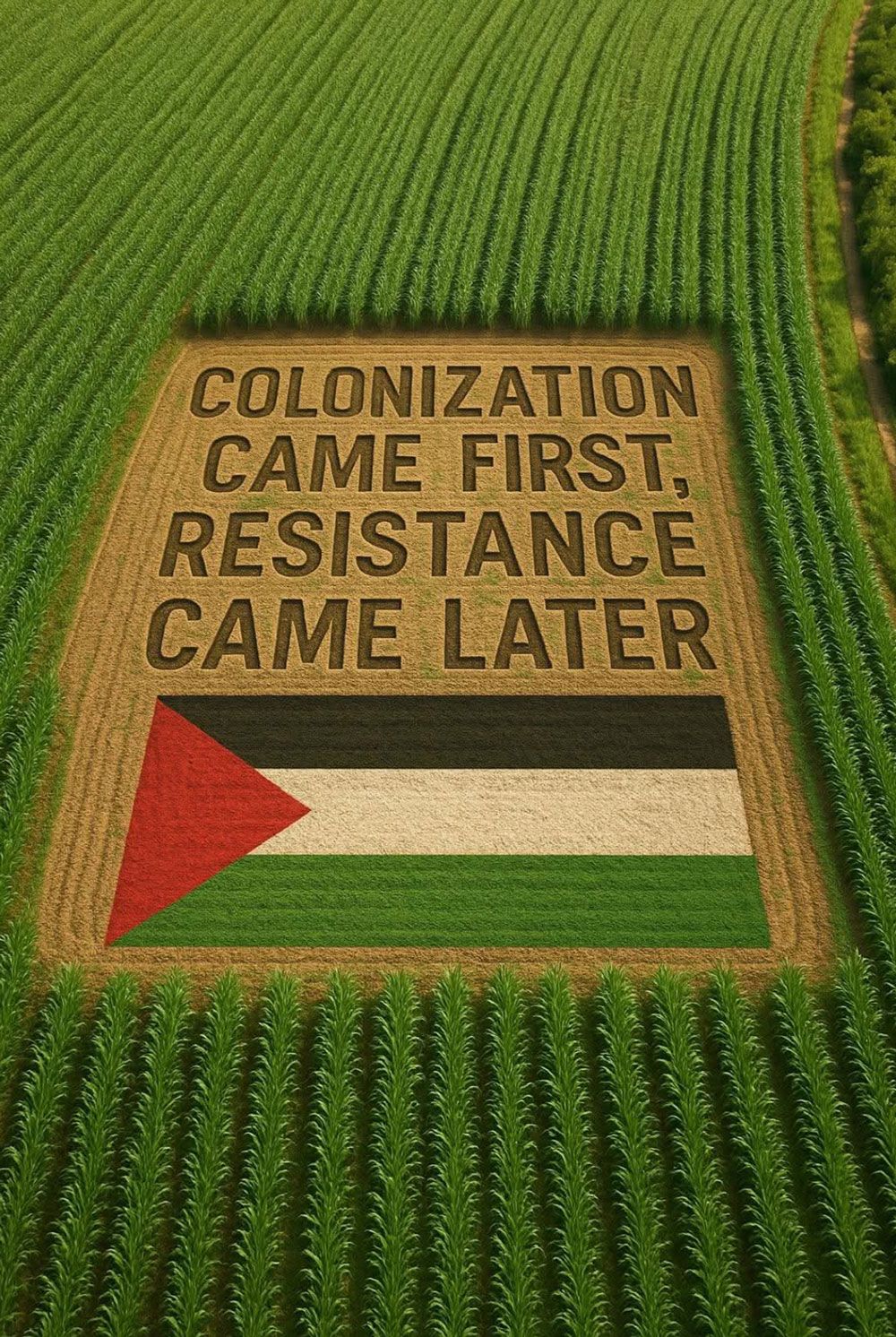
On the 28th of October 2025, South Africa’s legal team filed its final Memorial – detailed “in over 750 pages of text, supported by exhibits and annexes of over 4 000 pages” as reported in a statement issued by the Department of International Relations and Cooperation (DIRCO, 2024).
The Memorial – the name for the document recording the main case of South Africa against Israel – contains evidence which shows how the government of Israel has violated the genocide convention by promoting the destruction of Palestinians living in Gaza, physically killing them with an assortment of destructive weapons, depriving them access to humanitarian assistance, causing conditions of life which are aimed at their physical destruction and ignoring and defying several provisional measures of the International Court of Justice, and using starvation as a weapon of war and to further Israel’s aims to depopulate Gaza through mass death and forced displacement of Palestinians.
Ten days prior to the submission of the Memorial, the UNHRC Independent International Commission of Inquiry on the Occupied Palestinian Territory, including East Jerusalem and Israel, chaired by South African Judge Navi Pillay also issued a position paper with a legal analysis and recommendations on the implementation of the ICJ’s Advisory Opinion on the occupation. On the 16th of September 2025 the Commission found that Israel has committed genocide against Palestinians in the Gaza Strip[1]ohchr.org. The chair of the Commission explains in the report that:
Israel has flagrantly disregarded the orders for provisional measures from the International Court of Justice and warnings from Member States, UN offices, human rights organisations and civil society groups, and continued the strategy of destruction of the Palestinians in Gaza…The Commission finds that the Israeli authorities had no intention to change their course of actions. On the contrary, Israeli authorities have persisted and continued with their genocidal campaign in Gaza for almost two years now. Israel must immediately end the genocide in Gaza and comply fully with the orders for provisional measures of the International Court of Justice.
The Commission insisted that Israel must end its policy of starvation, lift the siege and facilitate and ensure the unimpeded access of humanitarian aid at scale and unhindered access of all United Nations staff, including UNRWA and OHCHR international staff, and all recognized international humanitarian agencies delivering and coordinating aid.
The Commission also recommended that all states cease the transfer of arms and other equipment that may be used for the commission of genocidal acts to Israel; ensure individuals and corporations in their territories and within their jurisdiction are not involved in aiding and assisting the commission of genocide or incitement to commit genocide; and take action on accountability through investigations and legal proceedings against individuals or corporations that are involved in the genocide directly or indirectly.
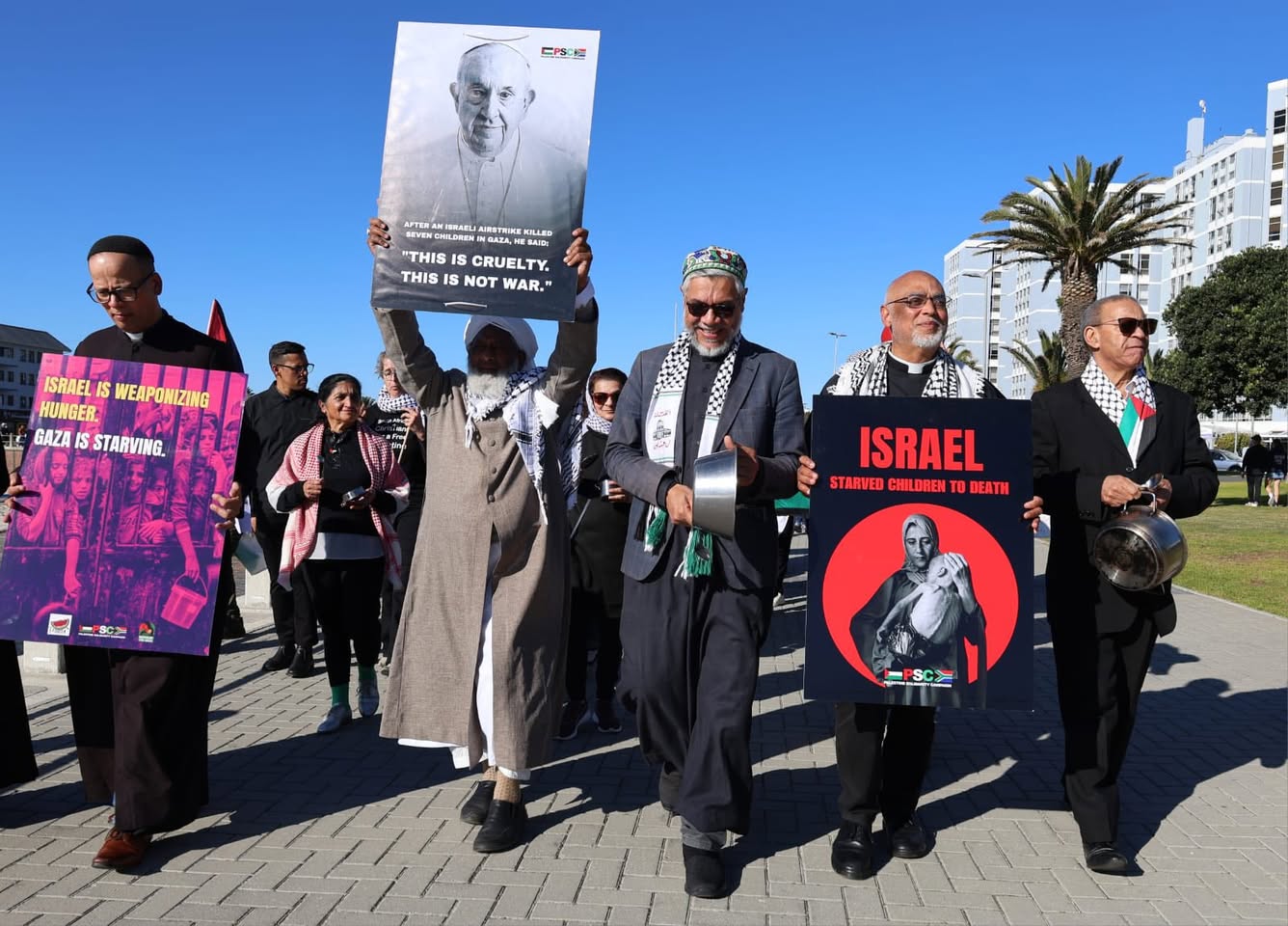
South Africans’ solidarity with Palestinians does not start with the ICJ initiative. The historical roots are fundamental to understanding contemporary times and the significance of the ICJ order. Many people see the latter as a government initiative, but it has come to this point because of a deeper history. Since 1994, after the ending of legal apartheid, the government was forced to give rhetorical support to the Palestinian struggle because of the strong and visceral feelings of the majority of South Africans in support of the Palestinians—and it was social movements, trade unions, youth groups, feminist organisations, progressive faith-based organisations that pushed the government to take this stance.
South Africa though has a long history with Occupied Palestine.
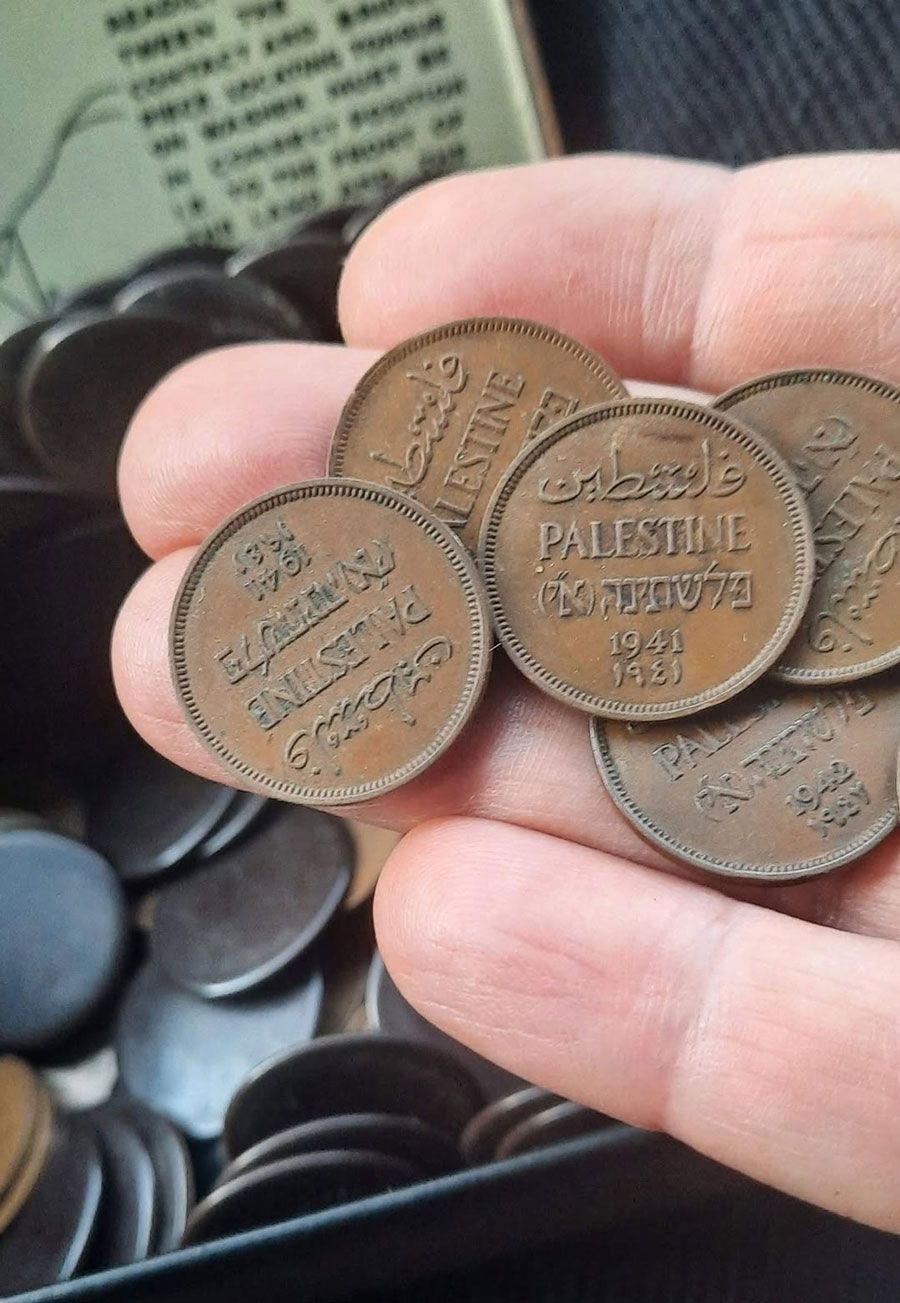
To start with, both societies as settler colonial formations were formed by Europeans, overseen by British imperialism. They enacted their racist states in 1948 relying on white supremacy and its ‘civilising mission’ complemented by the messianic ‘God’s chosen people’ view and the gift of a ‘promised land’ based on a particular interpretation of the Bible — at the expense of indigenous people. The mission to incorporate religious belief systems was intrinsic to these colonial endeavours but always subsidiary to and useful for the rationalisation of land conquest and occupation.
Ties between South Africa and Zionism predate the creation of Israel. An entry in Theodor Herzl’s diary (Herzl is considered the ‘father of Zionism’) mentions a letter that he sent to Cecil John Rhodes in 1902. In it he wrote: “You are being invited to help make history. It doesn’t involve Africa, but a piece of Asia Minor; not Englishmen but Jews… How, then, do I happen to turn to you since this is an out-of-the-way matter for you? How indeed? Because it is something colonial.” (Bar-Yosef, 2007).
Herzl’s decision to approach Rhodes was far from coincidental. He wanted his Jewish Company to be modelled along the lines of Rhodes’ British South Africa Company. Herzl wrote: “The Jewish Company is partly modeled on the lines of a great land-acquisition company…The Jewish Company will be founded as a joint stock company subject to English jurisdiction, framed according to English laws, and under the protection of England”. “The Jewish State” (Theodor Herzl). The “native population” would not be the one to grant the sovereign right to colonise their country. Just as Queen Victoria gave the British South African Company a charter to mine minerals in South Africa in 1889, so did Herzl envision his initiative to start out “under the protectorate of the European Powers.”
It is important to point out that the choice of Palestine as a target of colonisation was not essential for Herzl’s project. For Pessah, 2020, his reasons for considering Palestine (as opposed to Argentina or Uganda which were also considered) were that many Jews had already immigrated to Palestine; that more Jews would endorse Zionism for religious reasons, “The very name of Palestine would attract our people with a force of marvelous potency”; and that “we should there form a portion of a rampart of Europe against Asia, an outpost of civilization as opposed to barbarism.”
Under Herzl’s plan, indigenous Palestinians, or whoever happened to live in the territory chosen for colonisation, would be forced to forgo their land, just as South African minerals ended up in the hands of Rhodes. Herzl predicted that the natives may “feel threatened” by this arrangement but put his trust in a European power to resolve the issue.
The relationship continued in the early years of the 20th century in the friendship between British Zionist leader and later first President of Israel, Chaim Weizmann, and South African Field Marshal, and later Prime Minister, Jan Smuts.[2]Richard P. Stevens, “Smuts and Weizmann,” Journal of Palestine Studies, Autumn 1973, in Stevens and Elmessiri, 22-44; and That friendship was instrumental in securing the issuance of the Balfour Declaration (1917), which supported in principle the creation of Israel on Palestinian land. Smuts was also supportive at the United Nations during the discussions of the partition of Palestine, and South Africa was among the first governments to recognize the newly declared Israeli state.[3]palestine-studies
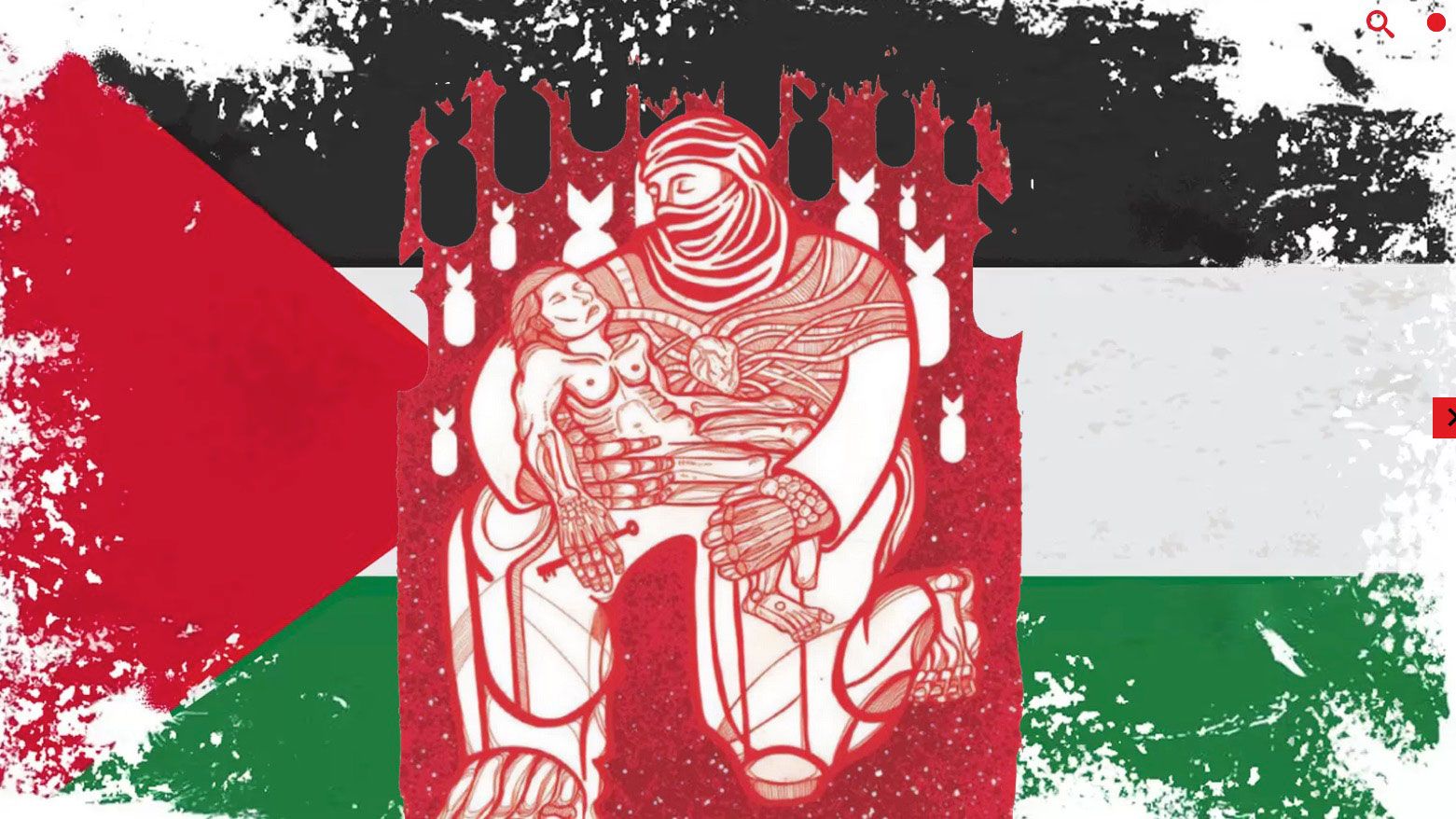
In addition to identifying viscerally with the struggle of Palestinians, South Africans also recognised Israel’s culpability in their own oppression. For instance, Israel was an important arms supplier to Apartheid South Africa despite the international arms embargo, and as late as 1980, 35% of Israel’s arms exports were destined for South Africa. Arms sales were a prominent aspect of the relationship, and the two countries began sharing military and intelligence information after Israel’s 1967 war. This help later proved valuable to South Africa in its attacks on its neighbours.[4]James Adams, The Unnatural Alliance (London: Quartet, 1984), 4-5.
Israel flew South African planes in the 1967 war, (Ibid, p32) and reportedly shared with South Africa the Mirage blueprints its intelligence service, Mossad, had acquired.[5]C.L. Sulzberger, “Strange Nonalliance,” New York Times, 28 April 1971. It also began to discuss joint aircraft production with South Africa.[6]Adams, 34.
Following the “Vorster agreements”[7]Richard P. Stevens and Abdelwahab M. Elmessiri, Israel and South Africa: The Progression of a Relationship (New York: New World Press, 1976) during the then apartheid prime minister’s visit to Israel in 1976, the flow of military trade between Israel and South Africa assumed a symbiotic form: technology and finished weapons from Israel were exchanged for raw materials and money from South Africa, a pattern that is also found in the economic relations between the two. A major component of the 1976 agreements with Vorster was the “trade” of Israeli expertise for both South African uranium and great open land and sea spaces for nuclear weapons testing.[8]Adams, 180-81; Major Gerald J. Keller, USMC, “Israeli-South African Trade: An Analysis of Recent Developments,” Naval War College Review, Spring 1980. Jane Hunter believes that the test took place in September 1979 in the South Atlantic.[9]Ronald Walters, “The September 22, 1979 Mystery Flash: Did South Africa Detonate a Nuclear Bomb?” (Washington Office on Africa, 1985). Author’s interviews. A full development of the assertion that Israel, not South Africa, had the weapon to be tested is in Jane Hunter, Undercutting Sanctions.
Much has been written about the subsequent relationship between apartheid South Africa and Israel. It will suffice here to say that Israel was loyal to the apartheid state and clung to the friendship when almost all other relationships had dissolved.[10]Polakow-Suransky, S, (2010), The Unspoken Alliance: Israel’s Secret Relationship with Apartheid South Africa, Auckland Park: Jacana Media) During the 1970s this affiliation extended into the field of nuclear weaponry when Israeli experts helped South Africa to develop at least six nuclear warheads and in the 1980s, when the global Anti-Apartheid Movement had forced their states to impose sanctions on the Apartheid regime, Israel imported South African goods and re-exported them to the world as a form of inter-racist solidarity. Israeli companies subsidised by the South African regime despite the pittance they paid workers were established in several Bantustans.
Israel has helped South Africa’s military sustain a counterinsurgency war against SWAPO in Namibia, the former colony of Southwest Africa, which the UN has ordered it to relinquish. Former Israeli Defence Minister Ariel Sharon, responsible for the Sabra and Shatila massacre of thousands of Palestinian refugees in Lebanon, was on the front lines in Namibia in 1981.[11]Drew Middleton, “South Africa Needs More Arms, Israeli Says,” New York Times, 14 December 1981. Israel also assisted the puppet regime installed by South Africa in Namibia in June 1985 with what appears to be a long-term pacification scheme[12]“Namibia Rulers to Israel,” Israeli Foreign Affairs, October 1985. See also “An Israeli Bid for Namibia,” Israeli Foreign Affairs, December 1984. along the lines of the one it master-minded in Guatemala.[13]Cheryl A. Rubenberg, Israel and Guatemala in MERIP Reports 140 (May/June 1986)
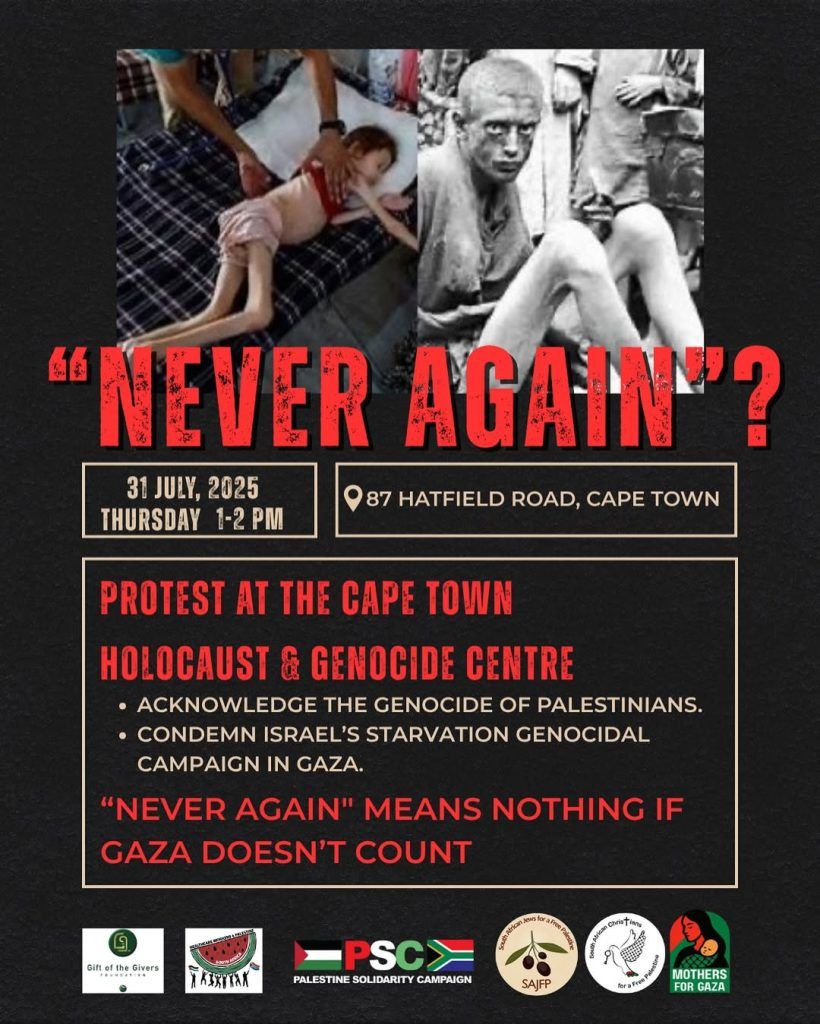
Settler Colonialism, Apartheid and Genocide
Throughout the apartheid years in South Africa, there were individuals and groups who identified and stood in solidarity with the Palestinian people and their struggle for freedom. The Palestine Liberation Organization (PLO) became a symbol of resistance for most South Africans. Several South Africans belonging to different liberation movements were also trained by Palestinian freedom fighters.
South Africans struggling against apartheid policies and realities agreed with apartheid prime minister Hendrik Verwoerd back in 1961 when he stated, approvingly in his context, that “Israel like South Africa is an apartheid state.”[14]Clarno, Andrew James (2009).(PhD thesis). University of Michigan. pp. 66–67
Unlike Verwoerd, they considered this a violent abuse of human rights rather than a reason to praise Israel. As mentioned, in 1976, a watershed year in the resistance against apartheid, then prime minister John Vorster (previously a member of the Nazi supporting Ossewabrandwag) was invited to Israel and received with open arms by the likes of Yitzhak Rabin and Shimon Perez.
There were also clear similarities between the sixty-five odd and increasing pieces of discriminatory legislation in Israel that governs all aspects of everyday life, the fragmentation and theft of the land and the matrix of security laws with what existed in South African Apartheid. While the laws are similar, they are not the same and according to many, apartheid Israel is by far much more severe than what existed in South African. An important critical difference though is that apartheid South Africa depended on the super exploitation of the labour of indigenous Black people. In Israel the indigenous Palestinians are disposal and expendable and hence the Israeli state’s genocidal intent. A point which I will return to later.
Over the past few years, many human rights organisations have concluded that systemic and widespread discriminatory Israeli policies and practices against the Palestinians amount to a violation of the international convention on the suppression and punishment of the crime of apartheid. Of course, Palestinians and South Africans have been saying this for decades.
A brief mention of the reports of major and reputable human rights organisations will suffice: In January 2021, B’Tselem, the Israeli human rights organisation, released a report unambiguously titled A Regime of Jewish Supremacy from the Jordan River to the Mediterranean Sea: This Is Apartheid.[15]btselem.org Three months later, Human Rights Watch, echoed this finding when it issued an exhaustive report, including extensive legal analysis, which concluded damningly that Israeli authorities are committing crimes against humanity, in the form of apartheid and persecution of the Palestinian people.[16]hrw.org A year later, in January 2022, Amnesty International, issued a report titled Israel’s Apartheid against Palestinians: A Cruel System of Domination and a Crime against Humanity.[17]amnesty.org The latter report’s key components include territorial fragmentation; segregation and control; dispossession of land and property; the denial of basic economic and social rights and the suppression of Palestinian’s human development.
Francesca Albanese’s September 2022 report to the UN General Assembly[18]Report of the Special Rapporteur on the situation of human rights in the Palestinian territories occupied since 1967, Francesca Albanese, Distr.: General 21 September 2022 Seventy-seventh session Item 68 (c) of the provisional agenda). n2427968.pdf significantly speaks to some limitations of the apartheid framework. First, with few exceptions, the scope of recent reports on Israeli apartheid is primarily ‘territorial’ and excludes the experience of Palestinian refugees. Albanese insists that the recognition of Israeli apartheid must address the experience of the Palestinian people in its entirety and in their unity as a people, including those who were displaced, denationalized and dispossessed in 1947 –1949 (most of whom and their descendants totalling between 6-9 million live outside the occupied Palestinian territories).
Second, the apartheid framework does not address the “root causes” which Albanese calls settler colonialism – a war crime under the Rome Statute.
Two months after the Special Rapporteur’s report, the Palestinian human rights organisation Al-Haq in its report Israeli Apartheid: Tool of Zionist settler colonialism[19]alhaq.org echoes Francesca Albanese and expands the current international discourse on apartheid, and importantly, examines apartheid as a structural element of furthering Zionist settler colonialism on both sides of the Green Line and against the Palestinian people as a whole and the fulfilment of the inalienable right of the Palestinian people to self-determination, systematically denied since the British mandate, and the right of refugees and exiles in the diaspora to return.
Despite these cases and reports, the sober assessment and frustration of Tareq Baconi from Al-Shabaka is understandable (Baconi, 2022):
we as Palestinians have learned that international law is not the site of our liberation. It is merely a tool in a struggle that is unfolding in other arenas. There can be no expectation that our liberation will be ushered in on the wings of reports written by Israeli or international organizations.
This sentiment is not defeatism, instead it embodies the indomitable spirit of Palestinians to exist and to resist. The book by Ramsy Baroud and Ilan Pappé’s (2022) Our Vision For Liberation – a collection of essays by thirty engaged public intellectuals/organic intellectuals in the Gramscian sense, whether in Occupied Palestine including 1948 Palestine or far from home, of different generations and involved in diverse forms of resistance expands on the quote by Baconi.
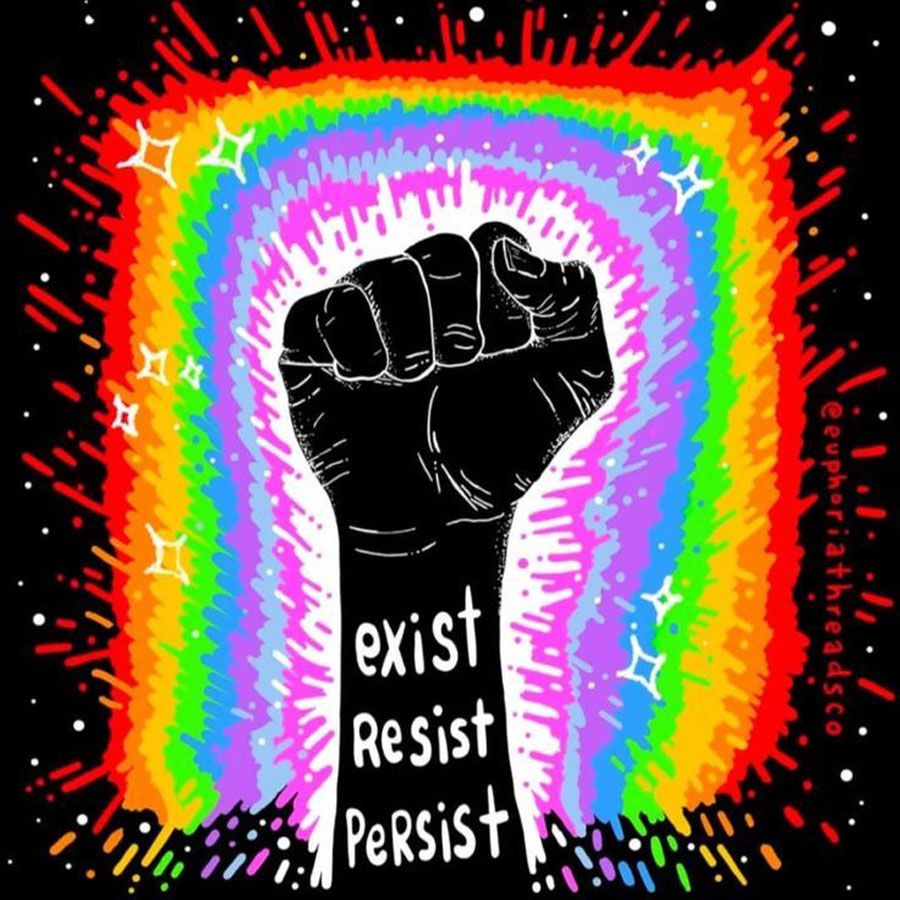
Despite the existence of numerous international treaties and conventions – meant to be normative guides for the behavior of nation states, they have been violated by Israel. Many of the contributors to the book by Baroud and Pappé (2022) speak to the martyrdom of loved ones, dispossession of land and livelihoods, the everyday gut-wrenching brutality of Zionist forces carried out with impunity, the perfidy of what Edward Said referred to as ‘bad leadership’, despotic authoritarian Arab rulers and the duplicity of Western and other governments. Yet, the contributors modestly and clearly document their fortitude and share their creativity and strategies out of the impasse. Ronnie Kasrils, a former minister in South Africa and member of the Palestine Solidarity Campaign, writes on the blurb of the book that “every page breathes the scent of freedom-sooner than is thought. This is an ode to joy, freeing us all from colonialist horror, and an uplifting glimpse into the possible future”.
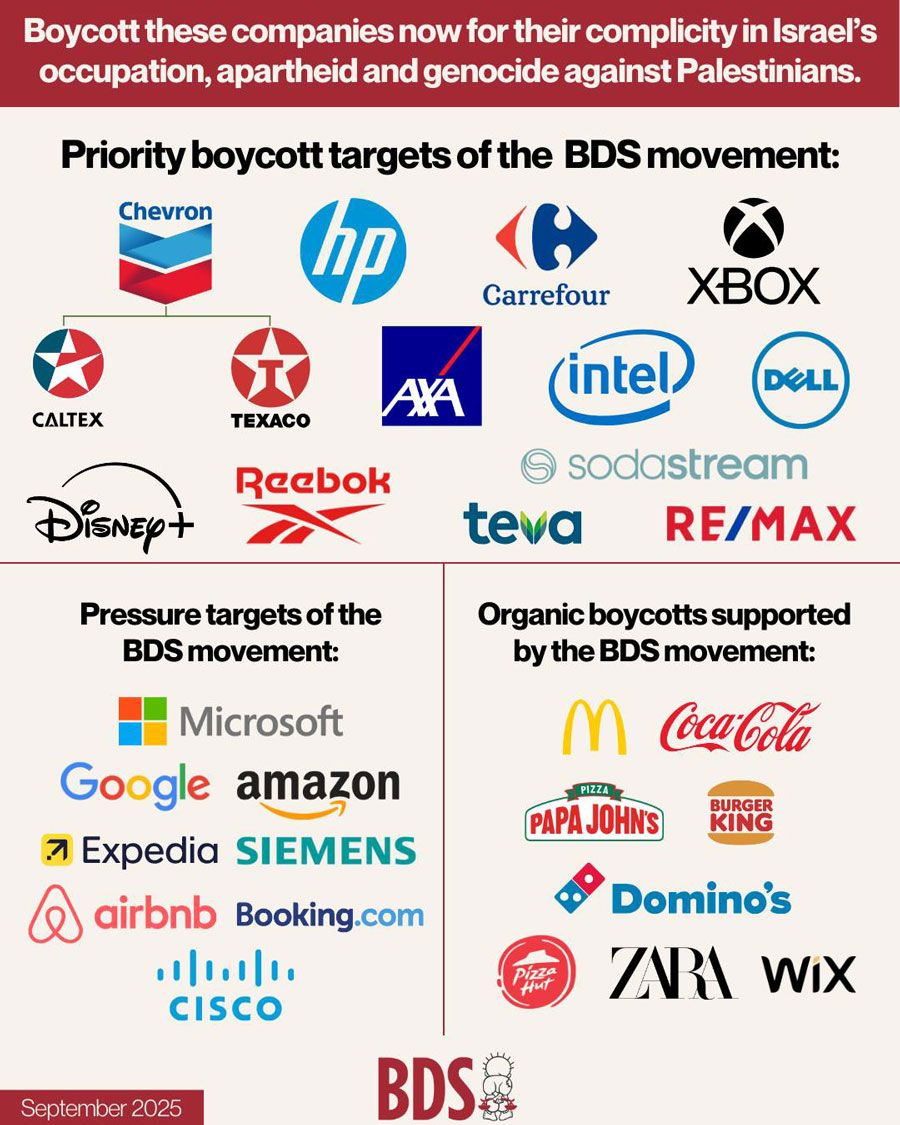
Genocidal US/UK/EU/Israeli Racial Capitalism
For a long time, Israel was allowed to act with impunity and without restraint. But we are starting to see changes we would not have thought possible a few years ago and the legal cases and the human rights reports with all their limitations assist the movements on the ground. Clearly, the reports based on international law have significance, but they largely focus on law and the political regime without a firm foundation in political economy and the role Israel plays for global capitalism. Haidar Eid and Andy Clarno (2017) argue for “an alternative definition of apartheid that grew out of the struggle in South Africa during the 1980s and has gained support among activists due to the limits of decolonization in South Africa after 1994 – a definition that recognises apartheid as intimately connected to capitalism”.
Together with others, they highlight settler colonialism and apartheid as both a system of legalised racial discrimination, land theft, labour exploitation and a system of racial capitalism.
The recent special issue of the Journal of Holy Land and Palestine Studies (2024) has as its theme, ‘Racial Capitalism and Palestine’ and the guest editors compellingly explain that “For us racial capitalism illuminates the nature of the monster and provides the theoretical and methodological tools to wage the struggle as is now required in the face of the unrelenting barbarism of Zionist colonialism and Western Imperialism”.
Kieron Turner, one of the editors in the opening article establishes the links between racial capitalism and settler colonialism, reconstructs analysis of Palestine through the framework of racial capitalism and the South African struggle, and in doing so reconstructs the theoretical and methodological understandings of ‘race’, capitalism, settler colonialism, imperialism and strategies of liberation. This is followed by Sai Englert and Gargi Bhattacharyya who argue the need for both settler colonialism and racial capitalism to be understood as co-constitutive elements of the global order with Palestine at its center. The third article by Muhannad Ayyash provides the global and imperial connections and argues that “Israel’s brutal violences of land theft, colonial extermination and the erasure of Palestinian political existence are the grounds for both Israeli and American Imperialist capital accumulation, and the concealment of the Israeli erasure of Palestine in international discourse and policy”.
We have to recognize that the Israeli economy was founded on the special political and military role that Zionism then and today fulfills for Western imperialism and global capitalism. Palestinian academic Adam Haniah states:
It is not merely the depth of suffering or length of exile that makes the Palestinian struggle an imperative of international solidarity in the current period. It is also the central location of the struggle within the broader context of global resistance to imperialism and neoliberalism.[20]bilaterals.org
Israel’s role was to make the region safe for oil companies in concert with despotic Arab regimes, protect the circuits of trade and prevent the radicalisation of mass struggle in the region but its role extends beyond that to supporting military dictatorships elsewhere and suppressing workers’ struggles around the world in very concrete ways. For example, Israel has carved out a niche market producing high-tech security essential for the day-to-day functioning of global capitalism, with the weaponry and technology it exports being field tested on the bodies of Palestinian men, women and children.
Writers such as Hamza Hamouchene (2024) and Adam Hanieh (2024) remind us that the Palestinian liberation struggle is:
…not merely a moral and human rights issue but is fundamentally and essentially a struggle against US-led imperialism and global fossil capitalism. There will be no climate justice without the dismantling of the deeply racist Zionist settler colony of Israel and without the overthrow of the reactionary Arab regimes, chiefly the Gulf monarchies.
Palestine is a global front against colonialism, imperialism, fossil capitalism and white supremacy. It is incumbent on all of us from climate justice activists to anti-racist organisations and anti-imperialist agitators to actively support Palestinians in their liberation struggle and uphold their undeniable right to resist by any means necessary.
The present world “After Gaza” (Mishra, 2025) needs deeper analysis beyond the academic discourses around decolonisation. It points to how the systemic social reproductive processes have achieved a worldwide application through this history and that Trumpism and the rise of fascism is largely a inevitable consequences of the contradictions of such a system and it produces its antithesis – resistance. The eviscerating shamelessness and barbarity of Zionism’s holocaust against Palestinians is ironically the actual heir of Nazism although it shares racist attributes with Jim Crow USA and apartheid South Africa. However, in South Africa and the USA exploitation had its limits. The oppression must not lead to the negation of the colonised, to their physical annihilation, since such a state of affairs would also imply the negation of the coloniser:
“he must deny the colonised with all his strength, and at the same time the existence of his victim is indispensable to the continuance of his own being … Were the colonised to disappear, the whole of colonisation including the coloniser would disappear with him”. [Renate Zahar. 1974. : Franz Fanon: Colonialism and Alienation. Monthly Review Press. Page 20]
Israel – despite its reliance on some amount of Palestinian labour – suffers no such compunction or dilemma. It has a relatively free hand and the support of the ‘civilised’ state of Europe and USA is paramount in its ability to subject Palestinians to a holocaust – an end of ends.
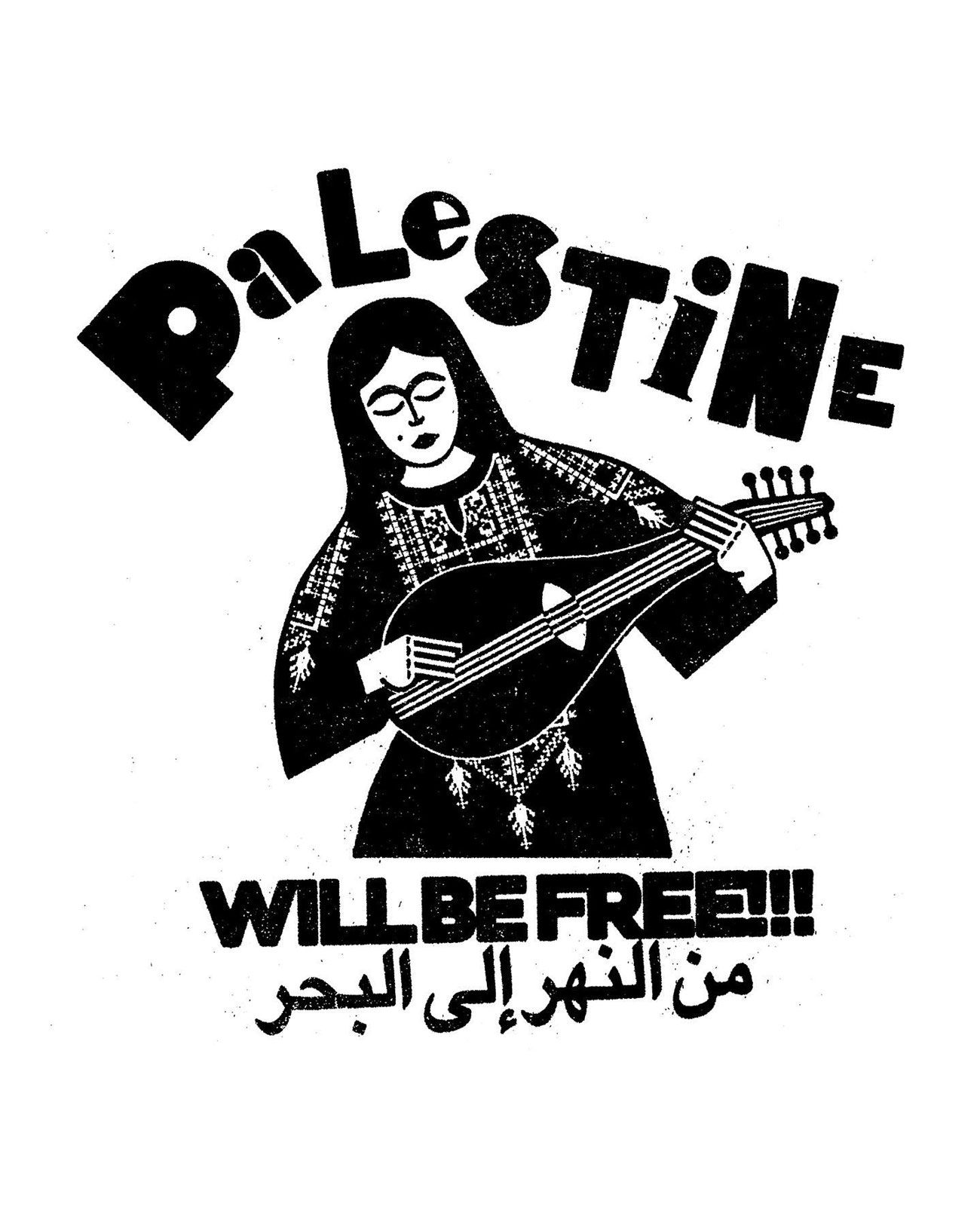
Yet, internationally, many of us feel that a tipping or inflection point is possible. Today we are starting to see changes we would not have thought possible a few years ago. Something similar happened with South Africa. The first call for a boycott campaign against apartheid was made as early as 1959. But it was only when dockworkers in Trinidad, Norway and Liverpool started refusing to load and unload South African goods in 1960 and waterside workers in Sydney refused to handle cargo on a ship that was believed to be carrying arms to South Africa in 1964; when shop workers in supermarkets in places such as Ireland started refusing to handle South African products; when people such as in New Zealand started to protest against touring South African sporting teams, that governments around the world started to change their positions.
Today, the hard work of activists throughout the world has enabled us to make very rapid gains. Of course, this has come at a huge price for Palestinians. The reality today looks very grim—as it did in the 1960s in South Africa. Many Palestinians feel this current moment may be a moment of change. That is why we need to build on the momentum that exists and, among other things, push for a boycott, divestment and sanctions strategy as existed against apartheid South Africa. This includes the shipping of over a million tons of South African coal to Israel since October 2023 (See Roshan Dadoo’s contribution to this issue).
Despite the genocide, we take succour from the fact that acts of defiance, determination and resistance often against seemingly overwhelming odds continue to support and encourage the will of Palestinians. Global solidarity activists need to be inspired and strengthened by the steadfastness, fortitude and courage of Palestinians despite the abject obsequiousness of some ‘leaders.’ Despite 76 years of massacres and atrocities piled upon outrages and injustices the resistance on all fronts continues. It is an antidote to the all too human feeling of despair at the extent of the horror of the genocide.
We on the outside should be inspired by this resistance and we have a clear role to play.
This essay consists of edited extracts from a longer paper written for the journal Education as Change
Albanese, F. (2024). Genocide as colonial erasure. Report of the Special Rapporteur on the situation of human rights in the Palestinian territories occupied since 1967. Distr.: General Assembly 1 October 2024 Seventy-ninth session Item 71 (c). n2427968.pdf
Baconi, T. (2022). Critique as movement building: The apartheid reports on Palestine, madamasr.com, March 29th, 2022.
Baroud, R and Pappe, I. (2022) Our Vision For Liberation: Engaged Palestinian Leaders & Intellectuals Speak Out. Clarity Press, Inc.
DIRCO – Department of International Relations and Cooperation (2024). South Africa delivers evidence of Israel genocide to ICJ. dirco.gov.za
Edinburgh University Press (Oct 2024). Journal of Holy Land and Palestine Studies, Volume 23, Issue 2.
Eid, H and Clarno, A. (2017). Rethinking Our Definition of Apartheid: Not Just a Political Regime.Aug 27. Al-Shabaka.
Global Anti-Apartheid Conference (2024) Toward a global anti-apartheid movement for Palestine: Johannesburg declaration on Israel’s settler-colonialism, apartheid and genocide. 23 May. links.org.
Hamouchene, H. (2024). Climate crisis, imperialism intertwined with Palestine genocide – an edited version of a speech that Hamouchene gave at the Black Lives Matter Liberation Festival on 13 July in London. mg.co.za
Hanieh, A (2024). Framing Palestine Israel, the Gulf states, and American power in the Middle East13 June.tni.org
Mishra, P. (2017). Age of Anger. Penguin Random House.
| 1. | ↑ | ohchr.org |
| 2. | ↑ | Richard P. Stevens, “Smuts and Weizmann,” Journal of Palestine Studies, Autumn 1973, in Stevens and Elmessiri, 22-44; and |
| 3. | ↑ | palestine-studies |
| 4. | ↑ | James Adams, The Unnatural Alliance (London: Quartet, 1984), 4-5. |
| 5. | ↑ | C.L. Sulzberger, “Strange Nonalliance,” New York Times, 28 April 1971. |
| 6. | ↑ | Adams, 34. |
| 7. | ↑ | Richard P. Stevens and Abdelwahab M. Elmessiri, Israel and South Africa: The Progression of a Relationship (New York: New World Press, 1976) |
| 8. | ↑ | Adams, 180-81; Major Gerald J. Keller, USMC, “Israeli-South African Trade: An Analysis of Recent Developments,” Naval War College Review, Spring 1980. |
| 9. | ↑ | Ronald Walters, “The September 22, 1979 Mystery Flash: Did South Africa Detonate a Nuclear Bomb?” (Washington Office on Africa, 1985). Author’s interviews. A full development of the assertion that Israel, not South Africa, had the weapon to be tested is in Jane Hunter, Undercutting Sanctions. |
| 10. | ↑ | Polakow-Suransky, S, (2010), The Unspoken Alliance: Israel’s Secret Relationship with Apartheid South Africa, Auckland Park: Jacana Media |
| 11. | ↑ | Drew Middleton, “South Africa Needs More Arms, Israeli Says,” New York Times, 14 December 1981. |
| 12. | ↑ | “Namibia Rulers to Israel,” Israeli Foreign Affairs, October 1985. See also “An Israeli Bid for Namibia,” Israeli Foreign Affairs, December 1984. |
| 13. | ↑ | Cheryl A. Rubenberg, Israel and Guatemala in MERIP Reports 140 (May/June 1986) |
| 14. | ↑ | Clarno, Andrew James (2009).(PhD thesis). University of Michigan. pp. 66–67 |
| 15. | ↑ | btselem.org |
| 16. | ↑ | hrw.org |
| 17. | ↑ | amnesty.org |
| 18. | ↑ | Report of the Special Rapporteur on the situation of human rights in the Palestinian territories occupied since 1967, Francesca Albanese, Distr.: General 21 September 2022 Seventy-seventh session Item 68 (c) of the provisional agenda). n2427968.pdf |
| 19. | ↑ | alhaq.org |
| 20. | ↑ | bilaterals.org |